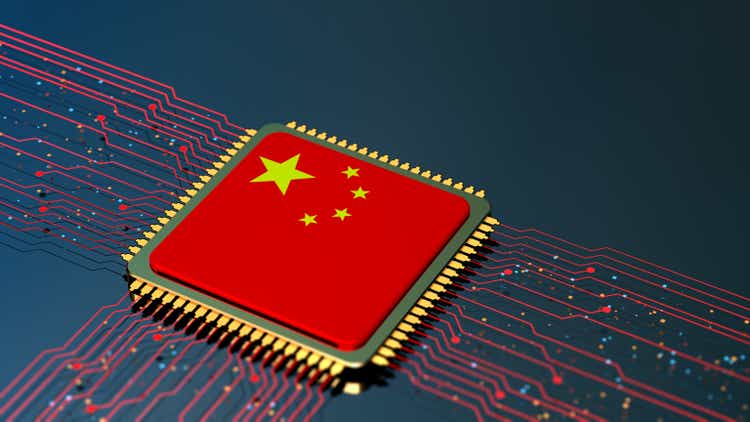
MF3d/E+ via Getty Images
Major Chinese technology companies Alibaba (NYSE:BABA), Baidu (NASDAQ:BIDU) and Tencent (OTCPK:TCEHY) have more than doubled their spending on artificial intelligence from last year, despite U.S. restrictions limiting access to chips and processors, the Financial Times reported.
The three companies had a combined capital expenditure of RMB 50 billion ($7.02 billion) in the first half of the year, compared with RMB 23 billion a year earlier, with the major focus on infrastructure related to training large language models for AI.
Alibaba’s (BABA) capital expenditure in the first half of the year reached RMB 23 billion, more than double the amount a year ago. “We’ll continue to invest in R&D and AI capex to ensure the growth of our AI-driven cloud business,” its CEO Eddie Wu said in an earnings call this month. “We can expect to see a very high ROI over these next quarters.”
For the six months ending June 30, Tencent’s (OTCPK:TCEHY) capital expenditures totaled about RMB 23.1 billion, compared to about RMB 8.4 billion spent for the same period last year.
“Looking forward, we continue to invest in our platforms and technologies, including AI, enabling us to create new business value and better serve user needs,” Tencent (OTCPK:TCEHY) said in its earnings report.
Baidu (BIDU), which saw its cost of revenue inching higher in the second quarter on AI-related expenses, reported capital expenditures of RMB 4.2 billion in the first half of the year, up 4% from a year ago.
Since 2022, the U.S. has put sanctions in place to curb the export of advanced AI chips and related equipment to China, including Nvidia’s (NVDA) H100 chip and newly introduced Blackwell series. However, lower-performance chips like the H20 are still available to Chinese customers.
